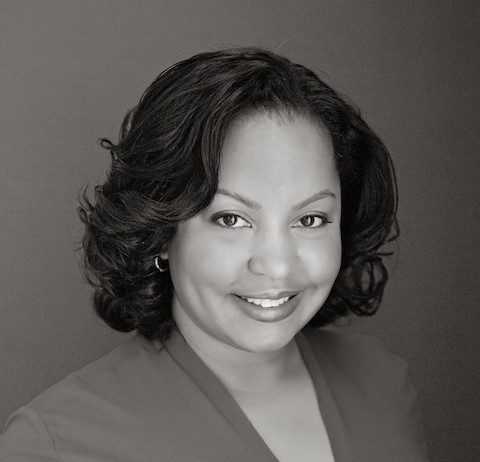For the next two years, pregnant women in Tennessee battling drug addiction will be in jeopardy of receiving up to 15 years in prison as a result of a new bill signed into law that criminalizes pregnancy outcomes.
In late April, Tennessee Gov. Bill Haslam signed SB 1391 into law, which would permit the prosecution of pregnant women who suffer from drug addiction, if they give birth to babies born addicted to or harmed by their drug usage. By doing so, Tennessee became the first state to authorize the arrest and incarceration of women who use drugs while pregnant.
Many doctors, women’s rights groups, addiction specialists, and reproductive health groups spoke out about the potential negative effects of the law. A petition urging Haslam to veto the bill garnered more than 11,000 signatures.
Those efforts were unsuccessful, and on April 29th, Haslam signed the bill into law. It’s scheduled to take effect July 1st.
Among those outraged by Haslam’s decision were Healthy and Free Tennessee, a statewide coalition working to improve reproductive health and sexual freedom. Prior to the bill’s passing, the organization spearheaded a movement in opposition to the bill.
Now the organization is campaigning for lawmakers to come up with a better solution for the law, which has an expiration date of 2016.
“In technicality, [the law is] going to turn health care providers into prosecutors,” said Allison Glass, statewide organizer for Healthy and Free Tennessee. “They’re going to have to basically turn in their patients over to prosecutors, which is very scary, because it’s going to lead women to not get the prenatal health care that they desperately need. And it’s going to result in women lying to doctors. We’re also very concerned that it’s going to lead to women having unwanted abortions to avoid going to prison.”
There were initially two proposed bills that sought to criminally charge pregnant mothers responsible for giving birth to babies harmed or dependent upon drugs: HB 1519, which was sponsored by Rep. John DeBerry (D-Memphis) and SB 1391, which was sponsored by Sen. Reginald Tate (D-Memphis). However, DeBerry decided to pull his bill after receiving numerous messages from antagonists and further researching the detrimental impact it could have on families.
On the contrary, Tate’s bill was passed and signed into law. Women prosecuted under the law can be sentenced up to 15 years in prison.
The punitive action outlined within the bill states that drug-addicted pregnant women could be charged with assault if her child is born addicted to or harmed by a narcotic drug it was exposed to while in her womb.
The bill was amended: initially, it stated that pregnant women could be charged with homicide, if their baby died as a result of their drug addiction. Tate also added an affirmative defense clause, which will enable women who are penalized under the law to enroll in an addiction recovery program before the child is born, remain in the program after delivery, and successfully complete the program. They can use their treatment completion as an affirmative defense to prosecution if they give birth to a child that’s addicted to or harmed by the narcotic drug they used.
The only potential upside of the law is the fact that it would help combat the percentage of women who take illegal narcotics while pregnant. This could potentially lower the city’s percentage of babies born with birth defects and also decrease the local infant mortality rate, which is one of the highest in the nation.
Yet Glass doesn’t feel there’s any benefits to the law. She thinks that the penalization will do nothing to help the public health issue but simply destroy families, heighten health risks, and place a larger financial burden on taxpayers.
“More women going into the prison system. There’s nothing good about that,” Glass said. “It’s going to cost taxpayers so much more money for these women to be in the prison systems than if they were able to actually get the support and treatment they need, keep a job, keep their children, and be able to contribute to society. This is going to do the exact opposite of that.
“Women who are struggling with addiction, they need help. They need treatment. They need more services. They need more prenatal healthcare,” Glass said. “It’s very dangerous for a woman and for her baby to be using illegal narcotics while she’s pregnant. If people and these lawmakers really want to help protect these babies, they will implement a law to add more services available to women. This law does nothing to expand the treatment centers that are available to women. There is no fiscal amendment to this bill. There is no more money being funneled to the treatment centers. And treatment centers for drugs and addiction are already incredibly burdened with the number of people who are trying to use the facility.”
According to RH Reality Check, only two of Tennessee’s 177 addiction treatment facilities provide on-site prenatal care and allow older children to stay with their mothers. And only 19 facilities provide care that caters to pregnant women in particular.
In 2013, there were 921 babies born who experienced withdrawal symptoms from drugs their mothers used while pregnant, according to the Department of Health. Mothers addicted to prescription medications birthed more than 40 percent of the babies.
The state passed the Safe Harbor Act in 2013, which will enable pregnant women addicted to prescription drugs to enroll in treatment programs. The act will hinder Department of Child Services from taking their newborns along with any other children they may have and will also help them avoid incarceration.
But pregnant women who battle addiction to other narcotics, such as heroin, cocaine, marijuana, and crack, don’t qualify under the act. However, they do face stiff penalties under the pregnancy criminalization law.
Glass said she thinks the law is a ploy to negatively impact minority and lower-income families.
“It targets women who are using [drugs like] cocaine and meth and heroin, while women who are addicted to prescription drugs are not going to be affected by this law,” Glass said. “We see a huge disparity between how women are treated who are addicted to prescription drugs and how women are treated who are using illegal narcotics. We know that people who are addicted to prescription drugs are, in most cases, of a higher class. They have more resources, so we feel like this law is going to absolutely unfairly target poor women, women of color, and women who don’t have the resources to go to a pregnant treatment facility.”
Now that the law is scheduled to take form, Glass said Healthy and Free Tennessee would be assisting lawmakers in challenging the law and finding more effective ways to help women who use illegal drugs while pregnant.
“We certainly hope that there will be a legal challenge to the law, because there are definitely elements of it that are unconstitutional,” Glass said. “I hope that groups will work to repeal the law. And there is a sunset provision of 2016, which really speaks to the lawmakers feeling very unsure that this was the right thing to do by them only enacting it for two years. During these two years, we’re going to work very hard to help lawmakers come up with a better solution.”
Several calls were made to Sen. Tate with regard to the passage of SB 1391. He didn’t respond.
Follow me on Twitter: @Lou4President
Friend me on Facebook: Louis Goggans
Check out my website: ahumblesoul.com


